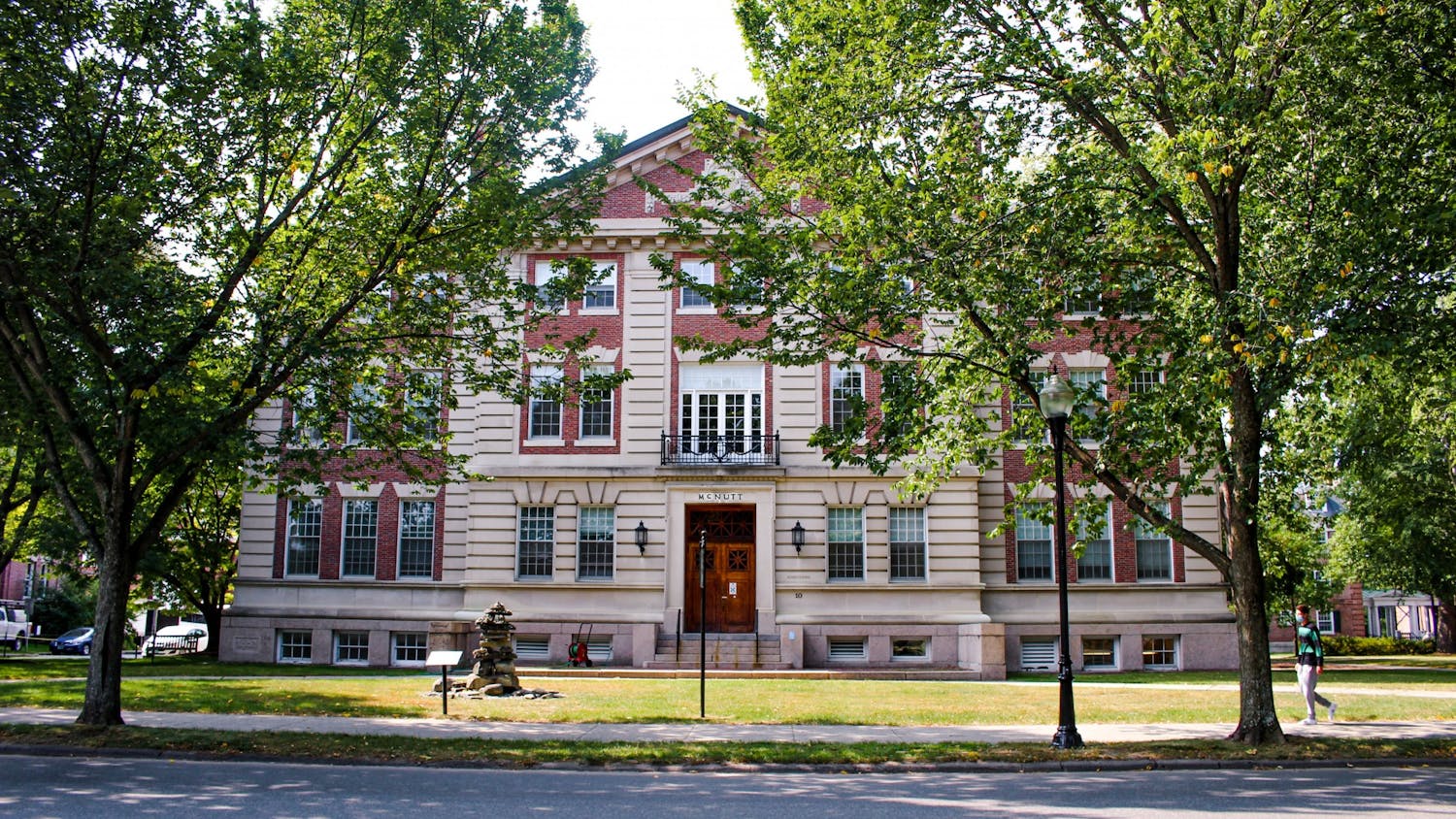Children's television show host Fred McFeely Rogers spoke to graduating seniors about the beauty of unconditional love, the inherent uniqueness of each person and the importance of interpersonal connections during his commencement speech on June 9.
Rogers concluded his speech by reciting the lyrics to a song he has often sung on his television show entitled "It's You I Like."
He explained that what the song "ultimately means, of course, is that you don't ever have to do anything sensational for people to love you. When I say it's you I like, I'm talking about that part of you that knows that life is far more than anything you can ever see or hear or touch. That deep part of you that allows you to stand for those things without which humankind cannot survive."
Similarly, Rogers related an anecdote about his visit to a master class of six young cellists from the Pittsburgh Youth Symphony, taught by prominent cellist Yo-Yo Ma.
During the class, Ma said to one young man, "Nobody else can make the sound you make."
According to Rogers, while Ma meant to compliment this particular young man, the statement held true for every cellist in the class and indeed, for all people. "Nobody else can make the sound you make. Nobody else can choose to make that particular sound in that particular way," he said.
Throughout his speech, Rogers emphasized the extent to which all people everywhere are interrelated.
He compared the world to "a magnificent jewel in the vastness of space" of which every one of us is a facet.
"And in the perspective of infinity, our differences are infinitesimal. We are intimately related. May we never even pretend that we are not," he said.
Likewise, Rogers allowed for a moment of silence during his speech so that the graduates might remember the special people that have "helped you become who you are today."
After the moment had elapsed, Rogers said, "Whomever you've been thinking about, imagine how grateful they must be that during your silent times you remember how important they are to you."
He continued, "It's not the honors and the prizes and the fancy outsides of life which ultimately nourish our souls. It's the knowing that we can be trusted, that we never have to fear the truth, that the bedrock of our lives from which we make our choices is very good stuff."
As Rogers attended Dartmouth for two years in the late 1940s before transferring to Rollins College in Florida, he alluded several times to his own experiences as a Dartmouth student, as different as Dartmouth was at that time.
For example, Rogers noted that the first word of the alma mater is no longer "Men", but rather "Dear," a change which he praised.
He also recalled his former dorm room, 101 Massachusetts Hall, which he shared with two roommates. He remembered a particularly strong astronomy course he took with Professor George Dimitrov, which he still remembers fondly whenever he looks at the night sky.
His remark that tuition, room and board cost a mere $1100 when he attended, drew laughs from the crowd.



